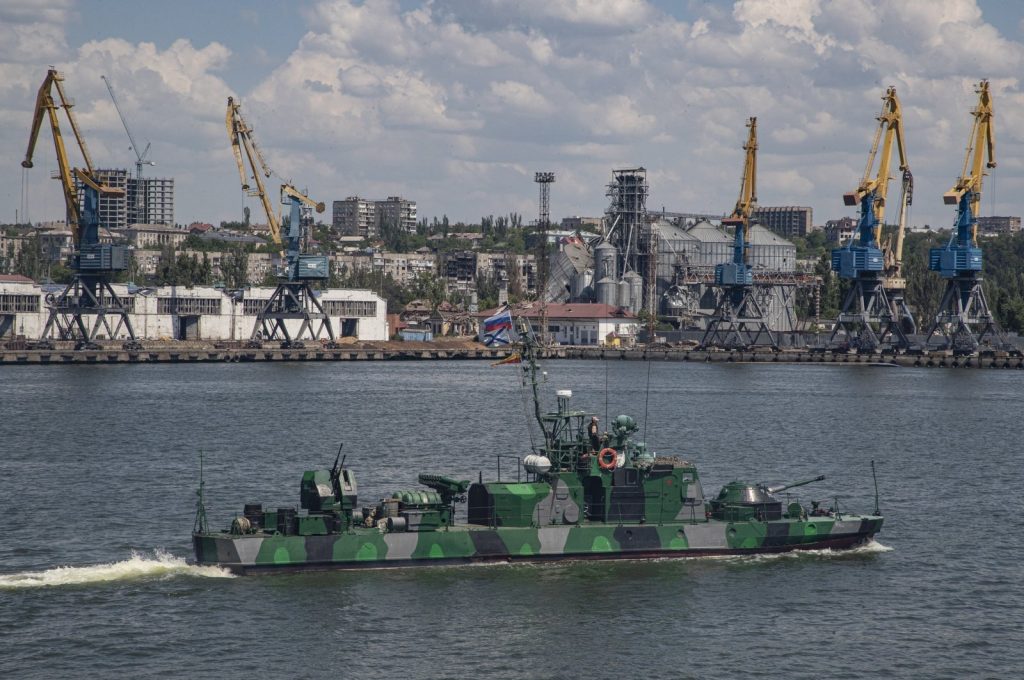Türkiye’s efforts to revive a crucial 2022 grain deal that helped fight off a global food crisis in the aftermath of Russia’s invasion of Ukraine seem futile. As the conflict continues fiercely, the warring sides remain far away from the idea of coming together and signing new agreements more than ever.
President Recep Tayyip Erdoğan earlier this month voiced Ankara’s intention to discuss the continuation of the Black Sea grain deal which the U.N. and Türkiye brokered with the parties to ensure safe navigation of commercial vessels in the Black Sea. When the initial agreement expired in July 2023, Moscow refused to renew it and Kiev started using an alternative route for its grain along the coasts of Bulgaria and Romania.
Russian demands as part of the grain deal, such as the inclusion of the state-owned Russian Agricultural Bank in the SWIFT international payment system had not been met and are unlikely to be met in the future as Ukraine opposes to advantage Russia in any way.
“There is no talk about Russia’s demands. Russia started the war and committed crimes, and it was punished by sanctions. And there is no way to lift sanctions. So, we couldn’t talk about any concessions to the Russian’s aggressive policy,” a Ukrainian diplomatic source told me.
“We cannot talk about a new grain deal, but maybe some other topics, related to navigational security and other issues which could establish more possibilities for free shipping, free navigation and freedom of navigation – that might be the topic for discussion, but once again, we will not turn back to the conditions which have existed before,” the source added, underlining that Türkiye’s efforts in this direction would only be limited to issues of security of navigation which is not guaranteed at the moment.
Kyiv’s alternative route has allowed the export of about 30 million tonnes of grain and other agricultural products. However, unlike the initial grain corridor, Russia’s security guarantees for exports via the Black Sea are not guaranteed, while Ukraine’s Black Sea port infrastructure has been a constant target for Russian attacks since the abandoning of the grain deal. Although Ukraine’s alternative corridor seems fruitful at the moment, it lacks the necessary guarantees and sustainability, leading to the possibility of potential disruption if Russia further steps up its attacks. Another problem that Kyiv may feel in the upcoming time is that widespread protests within the EU are causing the bloc to reconsider its import policies. EU member states and lawmakers reached a deal to cap duty-free imports of a range of Ukrainian farm goods, which were allowed in the wake of Russia’s invasion but these have drawn fierce protests from farmers in the bloc. Though currently supporting Ukraine, further pressure on lawmakers by farmers could change the situation in the future as wheat and barley not being subject to import safeguards already triggered an angry response from farmer groups that said this was a key demand.
Similar to Kyiv, Moscow also has no intention to return to the 2022 deal or any updated version since it has figured out its own alternatives. Russia’s grain exports are progressing at a good pace, despite problems with settlements, insurance and trade financing. The grain exports are projected to reach 65 million metric tons in the current 2023/24 season, compared with 60 million tons in the previous marketing season. Russia’s main grain markets are Türkiye, Egypt and Iran but it has also boosted exports to Algeria, Indonesia and Bangladesh. Moreover, Russia is sending grain to Africa. On top of that, Moscow recently started pushing for the idea of a BRICS grain exchange that would allow buyers to purchase directly from producers. All these developments and steps are pushing Russia further away from the idea of returning to the deal it sees as benefiting the Ukrainian economy rather than itself.
Thus, Turkish efforts and optimism as well as diplomatic contact with Russian foreign minister Sergey Lavrov in Antalya earlier this month or the recent visit of Ukrainian President Volodymyr Zelenskyy during which the issue was raised, are in vain for the time being. Ankara is right in advocating that a deal with a concrete legal framework and guarantees similar to the 2022 initiative that allowed the safe export of nearly 33 million tonnes of Ukrainian grain is more favorable. Ankara had also raised the possibility of bringing Russian grain to Türkiye and then sending it to needy African countries after processing it. Yet both countries insisting on their alternatives and further building up their options takes Turkish efforts further away from success. Ukraine and Russia must at least come together within the scope of Turkish diplomacy in order to facilitate a deal that would ensure secure navigation in the Black Sea. Resistance in these two vital areas poses a threat to the sustainability of both Russia’s and Ukraine’s economy and global food security as flare-ups continue and will continue in the future of the war.


